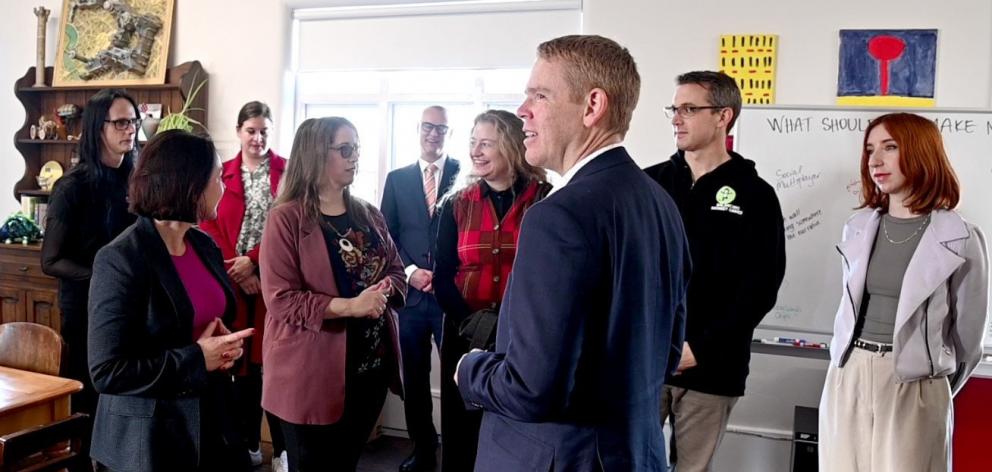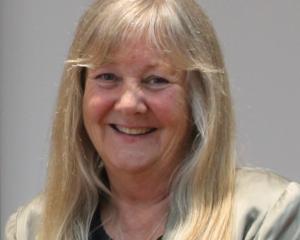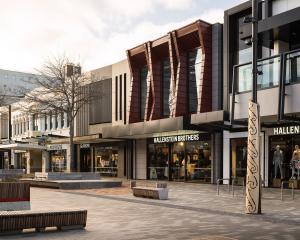
When I was growing up in the ’80s and ’90s, video games were made in far-off places. Places like Tokyo, LA and London. They were certainly not made in small-town West Australia, somewhere on the outskirts of Perth, which is still proudly referred to as "the most isolated state capital in the world".
Otepoti Dunedin is a bit like Perth in many ways. Maybe we don’t have quite the physical isolation and the nearest other big city isn’t that far on a plane. But we still have a feeling that we are out of the main production centres of things like creative industries.
Except in the 2020s, when we aren’t. My internet speed in Dunedin is 20 times the speed of where I was living in suburban Perth before I left — and just over half the price.
They don’t put that on the Australian tourism brochures. To me, that is like breathing: it’s my work tool and my connection to the world.
I started working with the New Zealand Centre of Digital Excellence (Code) remotely during the height of the pandemic. At that stage there were three active video game development companies in Dunedin.
Now there are 25; all grass-roots small businesses, owned and run by locals, making New Zealand-owned intellectual property. But the game development industry is nothing if not scalable so they can grow.
By the same token, games have undergone a huge evolution since I bought my first console with my pocket money in 1987.
Games are a $US200-billion-plus ($NZ327.98 billion) global business, the second-largest entertainment industry in the world.
The market has diversified and the old stereotypes of "gamer" still exist but the market is so much broader than that.
The pandemic meant that many people who would never identify with that title playing games with their friends as a way of connecting. As part of mainstream culture, we now have more people playing on their PCs, mobile devices, consoles, VR or the like than ever before.
One of the key things about the media we consume is that we want to see ourselves reflected in it. Seeing games made with a Kiwi voice, by locals in Dunedin, employing graduates from our local university and polytechnic has never been more powerful.
Games are very far from only being your classic shooters or racing car tropes any more. Sure, those still exist, but we have so much more diversification.
I have travelled globally with my work and seen 15,000 Pokemon Go players getting a police escort through Melbourne CBD the day before PAX AUS, an expo which welcomes more than 100,000 visitors over a three-day weekend.
People come together to play, enjoy and share games.
If you have ever wanted to see what several thousand people in a hall playing boardgames looks like (albeit next to a giant video game expo), I would suggest going to PAX AUS.
Curse those games for getting people up off the couch, connecting with others, walking for kilometres, generating export industry and promoting Aotearoa’s unique culture around the world.
This has been why working at Code NZ has been such a journey. In our organisations short lifespan, we have helped those companies start up. At least three companies have relocated people to Dunedin to take advantage of the regional programme and now they are making their lives here.
When we supply grants, that money goes on rents and lunches, and haircuts and groceries. And coffees, so many coffees.
The money we spend keeps people here and stays in the community here. Dunedin will always remain Code NZ’s spiritual home. I did not move halfway across the world from a place closer to Johannesburg than here just to have to move again to Wellington or Melbourne.
But our programme is going national. And this has tremendous benefit to the local community here.
Suddenly we can bring in additional experts to run workshops and mentorships we would not be able to justify with a Dunedin-only programme.
Last year we helped bring eight local businesses to PAX AUS, to showcase to the assembled games industry and media. This year, we have a bigger pavilion, so we will end up with more Dunedin games on display.
And then there is the moment where a scout from an international publisher sees a product made by a Dunedin-based developer and thinks that it could feature in their portfolio and that developer’s life can change very quickly.
We talk about weightless exports and sustainable business and economic opportunities and we are doing it for real here in Otepoti.
Code NZ is part of that mix. A hand up, not a handout as the saying goes.
— Vee Pendergrast is operations manager of Code Dunedin.
Code NZ is funded by the government through Kanoa Regional Economic Development and Investment Unit at the MBIE, and was developed with the support of Enterprise Dunedin and Grow Dunedin Partners.












